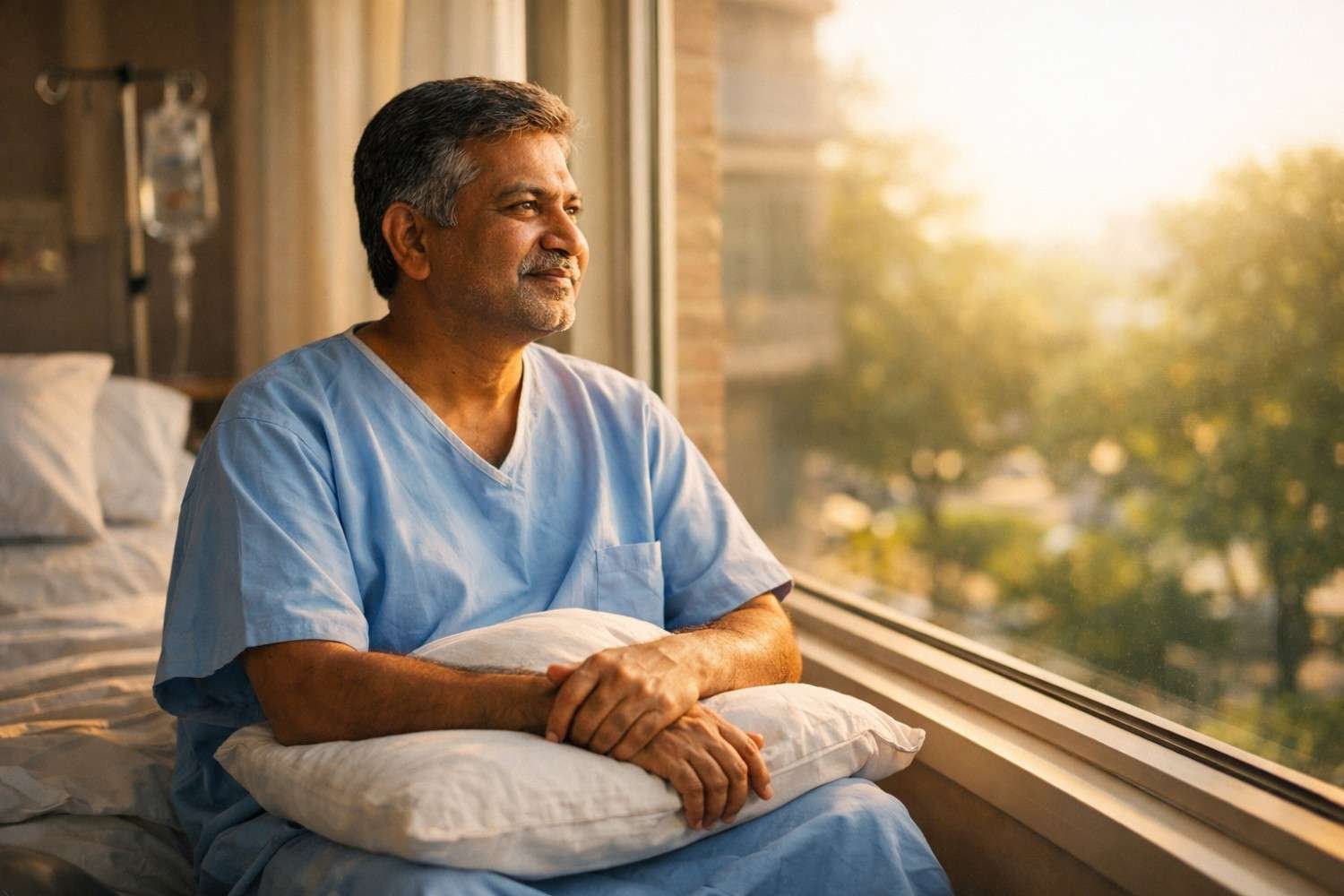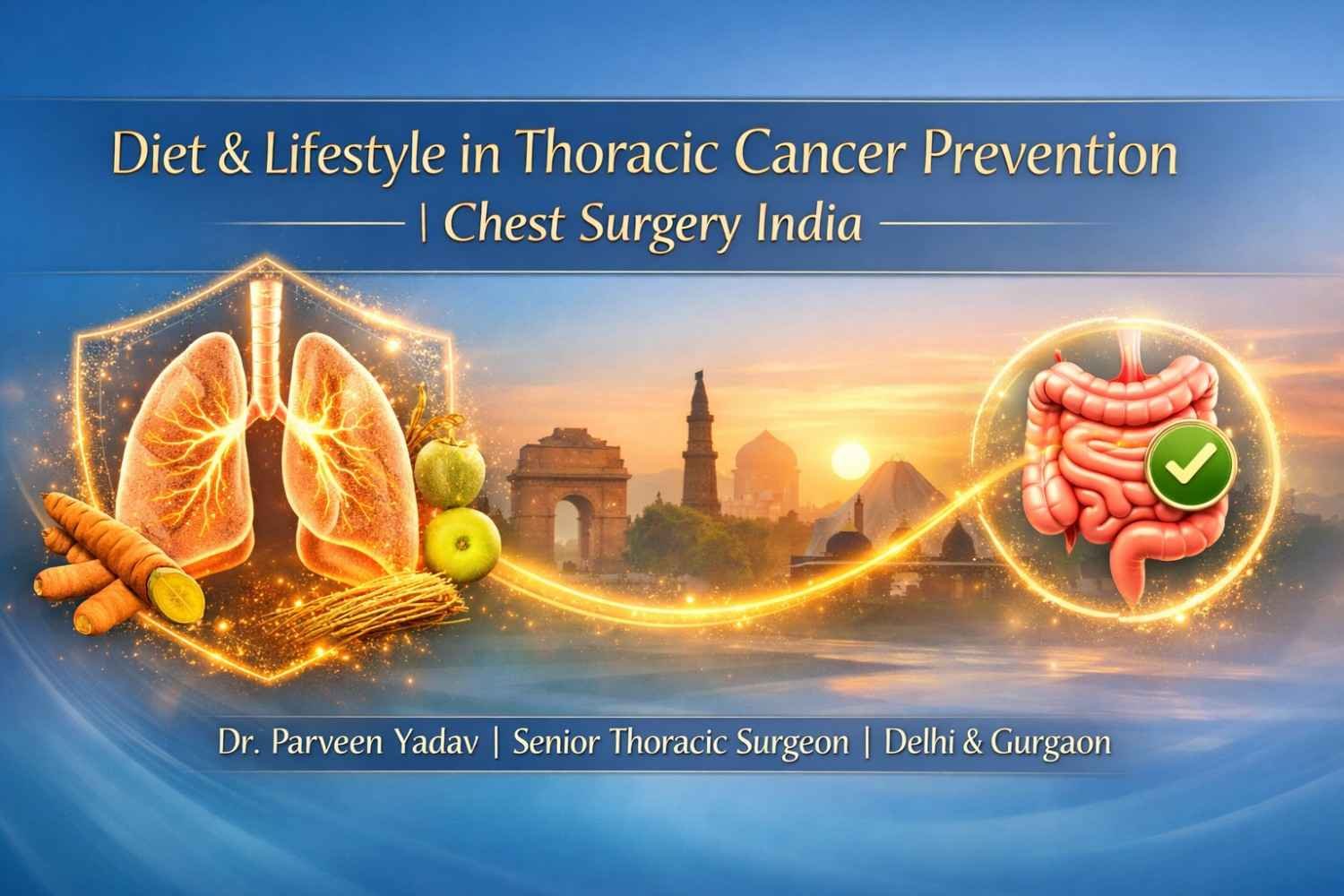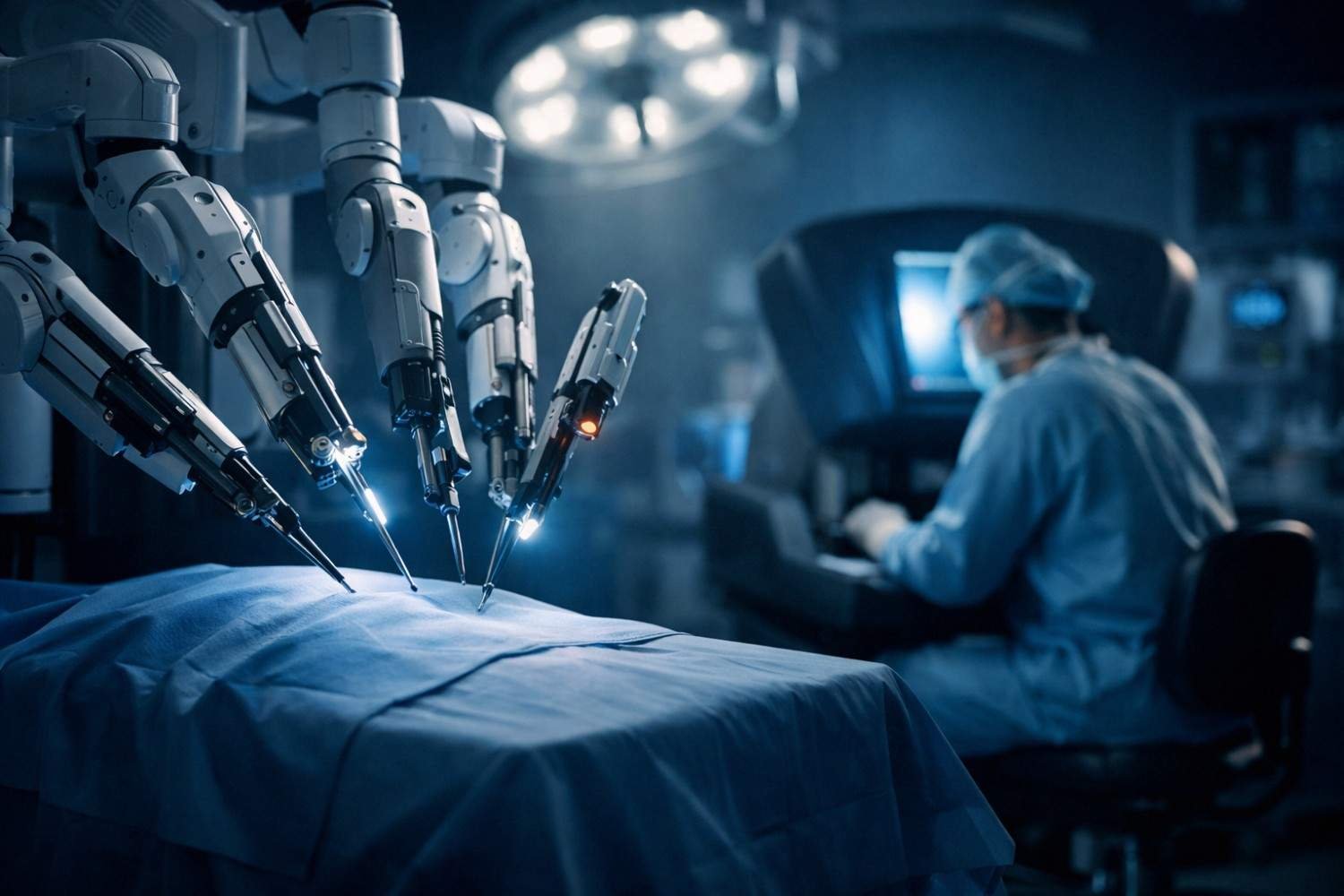

Tracheal cancer, or windpipe cancer, is a malignant growth in the tracheal lining. Though rare, it can be aggressive and challenging to diagnose due to its location. The trachea is a crucial part of the respiratory system, and any abnormalities in this area require prompt attention.
Tracheal cancer, like many other forms of cancer, is a result of uncontrolled cell growth. Several factors contribute to the development of tracheal cancer, although the exact cause remains unknown.
Tobacco Use: Exposure to cigarette smoke, both directly by smoking and indirectly through secondhand smoke, significantly raises the risk of developing tracheal cancer.
Occupational Exposure: Prolonged exposure to particular workplace carcinogens, such as asbestos, can elevate the risk of developing tracheal cancer.
Age and Gender: Tracheal cancer is more common in individuals over the age of 60, and men are generally at a higher risk than women.
Recognising the symptoms of tracheal cancer is essential for early detection and timely intervention. Common symptoms include:
Persistent Cough: A chronic cough that doesn't subside over time.
Breathing Difficulties: Difficulty breathing, wheezing, or shortness of breath.
Hoarseness: Changes in voice quality or persistent hoarseness.
Chest pain: It refers to any discomfort or pain that is felt in the chest area.
Unexplained Weight Loss: Significant weight loss without a clear cause.
Latest Blog: Tracheal Cancer Debunked: Myths vs. Facts
Understanding the risk factors associated with tracheal cancer aids in identifying individuals who may be more susceptible to this condition.
Smoking: Tobacco use, which includes smoking and exposure to secondhand smoke, continues to be a significant risk factor.
Occupational Exposure: Jobs that involve prolonged exposure to industrial pollutants, asbestos, or other carcinogens increase the risk.
Age and Gender: Being over 60 and male increases the likelihood of developing tracheal cancer.
Seeking specialised care is crucial for the best outcomes when treating tracheal cancer. Delhi and Gurgaon offer advanced medical facilities, including expertise in tracheal cancer treatment.
In the heart of India's capital, Delhi, renowned medical institutions provide state-of-the-art tracheal cancer treatments. Leading specialists like Dr. Parveen Yadav are at the forefront of innovative therapies tailored to individual patient needs.
Gurgaon is a rapidly developing city in the National Capital Region. It offers advanced medical facilities for treating tracheal cancer, allowing patients to access world-class care and the latest advancements in medical science.
Surgery plays a crucial role in treating tracheal cancer, especially in advanced cases. Delhi, with its advanced surgical infrastructure, offers a range of surgical options to address tracheal cancer effectively.
Dr. Parveen Yadav, a distinguished tracheal cancer specialist in Delhi, is renowned for his expertise in thoracic surgery. His commitment to patient care and innovative treatment approaches make him a trusted name.
Dr. Parveen Yadav stands out for individuals seeking the best doctor for tracheal cancer in Delhi because of his extensive experience and successful outcomes in treating complex cases.
Chest Surgery India, a leading healthcare institution in Delhi, is recognised as the best tracheal cancer hospital in the region. With a multidisciplinary approach and cutting-edge facilities, they ensure comprehensive care for tracheal cancer patients.
Tracheal cancer requires a multidimensional approach involving accurate diagnosis, specialised treatment, and post-treatment care. In Delhi and Gurgaon, patients can access top-tier medical facilities and renowned specialists, such as Dr. Parveen Yadav, ensuring the best possible outcomes.
In conclusion, understanding tracheal cancer, its causes, symptoms, and available treatments is vital for those affected. Seeking the expertise of specialists like Dr. Parveen Yadav and choosing reputable institutions like Chest Surgery India in Delhi and Gurgaon can significantly improve the prospects for tracheal cancer patients.
Q: What sets Chest Surgery India apart in tracheal cancer treatment?
A: Chest Surgery India is distinguished by its multidisciplinary approach, cutting-edge facilities, and a team of experts led by Dr. Parveen Yadav, a renowned tracheal cancer specialist.
Q: How does smoking contribute to tracheal cancer development?
A: Smoking introduces carcinogens into the respiratory system, increasing the risk of abnormal cell growth in the trachea and leading to tracheal cancer.
Q: Is tracheal cancer curable with surgery?
A: Surgical intervention is often effective, especially when combined with other treatments. Early detection enhances the success of surgical outcomes.
Q: What should I look for in identifying tracheal cancer symptoms?
A: Persistent cough, breathing difficulties, hoarseness, chest pain, and unexplained weight loss are key symptoms that warrant medical evaluation.
Q: How can I schedule a consultation with Dr. Parveen Yadav for a tracheal cancer evaluation?
A: To schedule a consultation with Dr. Parveen Yadav, contact Chest Surgery India for appointments and more information on tracheal cancer diagnosis and treatment.

18+ Yrs Exp | 5,700+ Thoracic & Robotic Cancer Surgeries
Dr. Parveen Yadav is a Director and Senior Consultant in Thoracic and Surgical Oncology, specializing in minimally invasive and robotic lung and esophageal surgeries, with advanced training from AIIMS and Tata Memorial Hospital.
View Full Profile Pain After Thoracic Surgery: Tips for Smooth Recovery
Pain After Thoracic Surgery: Tips for Smooth Recovery
 Diet & Lifestyle for Thoracic Cancer Prevention | Dr. Parveen Yadav
Diet & Lifestyle for Thoracic Cancer Prevention | Dr. Parveen Yadav
 Robotic Thoracic Surgery: How Da Vinci Technology is Revolutionizing Chest Procedures
Robotic Thoracic Surgery: How Da Vinci Technology is Revolutionizing Chest Procedures
Struggling with pain after chest surgery? Dr. Parveen Yadav shares expert recovery tips, causes of shoulder pain, PTPS signs, and what your discharge sheet won't tell you.
Discover how diet, breathing exercises & daily habits help prevent and recover from thoracic cancer. Expert insights from Dr. Parveen Yadav, Chest Surgery India
Discover how Da Vinci robotic surgery is transforming chest procedures in Gurgaon. Less pain, faster recovery & expert care by a certified thoracic surgeon
Copyright 2026 © Dr .Parveen Yadav all rights reserved.
Proudly Scaled by Public Media Solution!